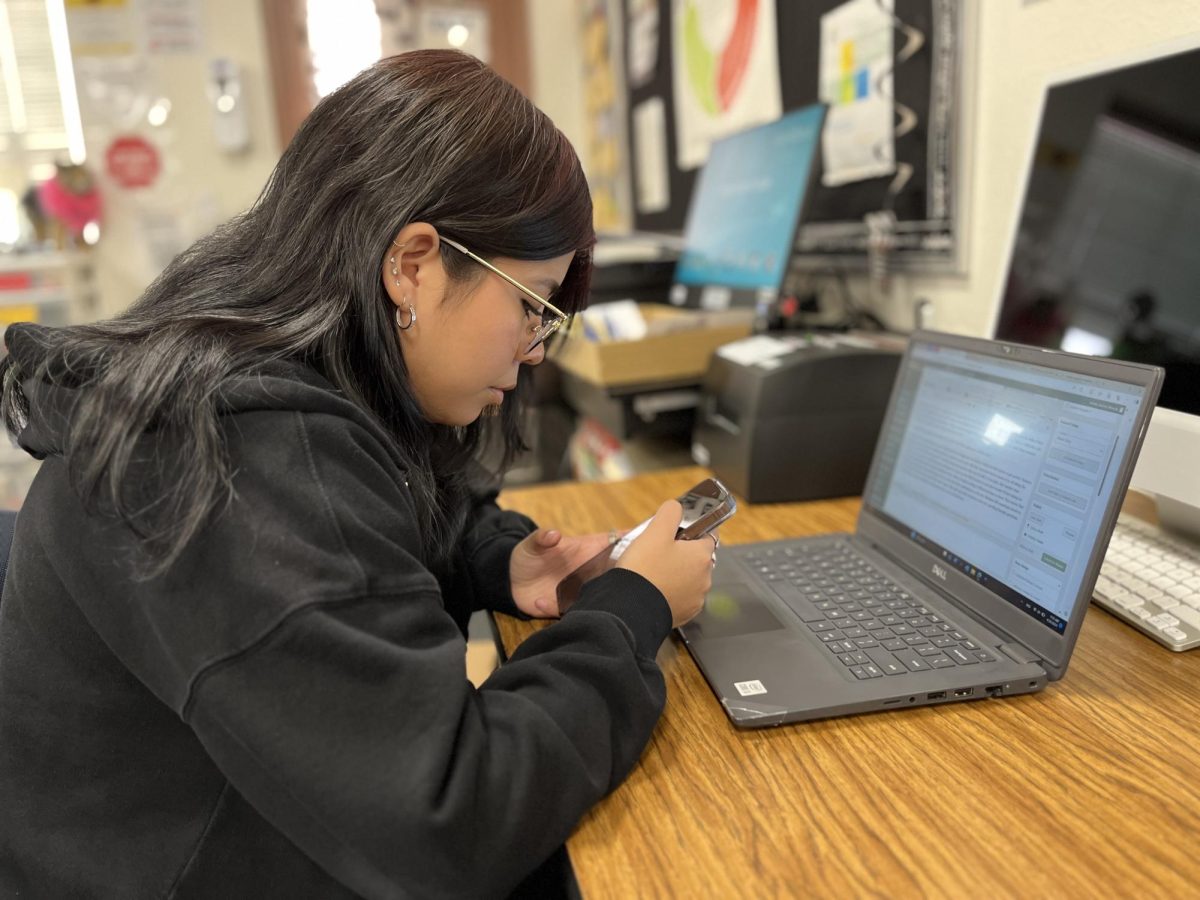During recent years, smartphones have become a staple in today’s society. It is rare that a teenager doesn’t own one or isn’t glued to their phone screen. The adults of the world seem to think that this is a bad thing and that teenagers shouldn’t be glued to their phone screens.
“Phones are destroying your brains, they’re not helping you succeed. They are conditioning you guys to have shorter attention spans also to have very limited working short term memory because you’re constantly scrolling to get a minor dopamine hit and then if you read the title or look at the picture or the video and you don’t like it, you purge the information.” said world history teacher, Ms. Bromberek.
Parents and teachers are endlessly nagging teenagers about the time spent on their smartphones, but they hardly stop to think about all the advantages smartphones have given us. Phones have given students the ability to get the latest updates on their assignments and grades as soon as teacher’s post them.
“I noticed since my phone was taken away, that I had a hard time checking my email since I wouldn’t get notifications.” said Sophomore, Ambrielle Gallegos.
Students constantly hear how important it is to check your email and your grades at least once a day, and phones make it easier for that to happen. While it is understandable that smartphones took away a teenager’s cravings to spend some time outside, smartphones have upgraded students’ day to day lives. The smartphone is always made out to be the enemy in classrooms, but maybe phones aren’t the problem.
“My phone is a distraction to me in classes, but I don’t think that it really affects my productivity and grades that much because I still get all my work done, and despite using my phone in class, I still have good grades in my classes and I’m in the top 10% of my graduating class.” said Sophomore, Andrew Ernst.
If adults could just stop seeing the smartphone as a distraction and instead see it as a useful tool, then teenagers wouldn’t be so shamed by society just for using the smartphone to its fullest potential. Teachers might need to take another look at their classrooms because as far as it seems, phones are not the problem in today’s education.







